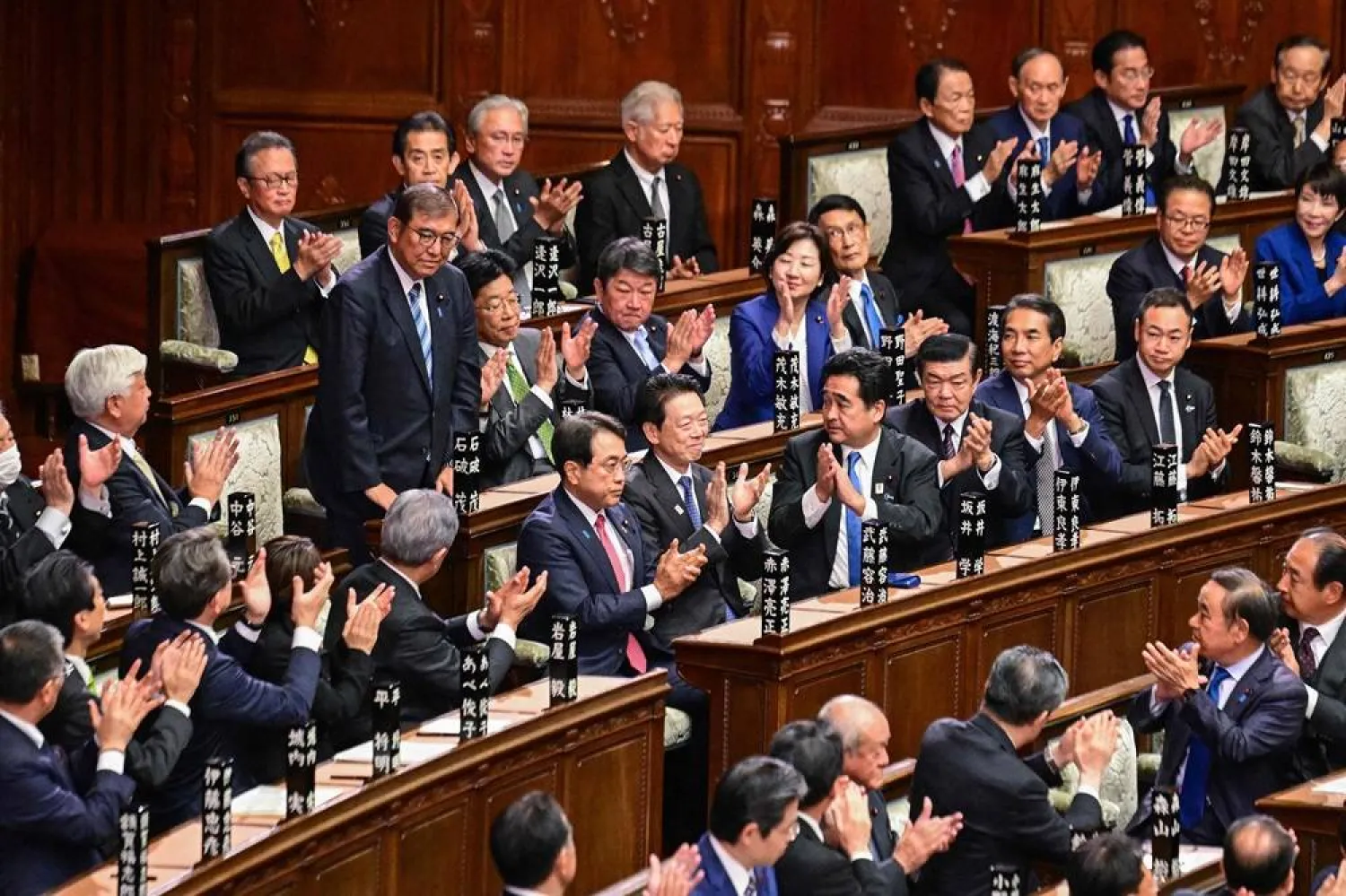Japanese lawmakers voted on Monday for Prime Minister Shigeru Ishiba to stay on as leader, after his scandal-tarnished coalition lost its parliamentary majority in a lower house election last month.
Ishiba, who called the snap poll after taking office on Oct. 1, must now run a fragile minority government as protectionist Donald Trump returns to office in main ally the United States, tension rises with rivals China and North Korea, and domestic pressure mounts to rein in the cost of living.
His Liberal Democratic Party and coalition partner Komeito won the biggest bloc of seats in the election but lost the majority held since 2012, leaving him beholden to small opposition parties to pass his policy agenda.
Underlining that fragility, Monday's vote in parliament, broadcast on television, went to a runoff for the first time in 30 years, with no candidate able to muster majority support in the first round.
But Ishiba eventually prevailed as expected, garnering 221 votes, well clear of his nearest challenger, ex-PM Yoshihiko Noda, the head of the main opposition Constitutional Democratic Party, but still short of a majority in the 465-seat lower house.
Japan will hold elections next year for the less powerful upper house, where the ruling coalition's slim majority could also be at risk if Ishiba cannot revive public trust roiled by a scandal over unrecorded donations to lawmakers.
His imminent challenge is compiling a supplementary budget for the fiscal year through March, under pressure from voters and opposition parties to raise spending on welfare and take steps to offset rising prices.
For approval he needs the backing of at least one opposition party, which is most likely to be the Democratic Party for the People (DPP) headed by Yuichiro Tamaki.
He has held co-operation talks with Ishiba, but DPP lawmakers on Friday did not vote for Ishiba to stay on as prime minister.
Tamaki is also in a precarious position after admitting Monday to an extra-marital affair revealed in a tabloid magazine.
With his premiership confirmed, Ishiba now has to prepare for a slate of international engagements, including a summit of the Group of 20 big economies in Brazil on Nov. 18 and 19.
He is also trying to arrange a stopover in the United States on the way to or from that gathering to meet Trump.
Some Japanese officials fear Trump might again hit Tokyo with protectionist trade measures and revive demands for it to pay more for the cost of stationing US forces there.
These issues were largely smoothed over in Trump's first term, from 2017 to 2021, by the close ties between the president and Japan's then-premier, Shinzo Abe - a bond Ishiba seems keen to re-establish.









